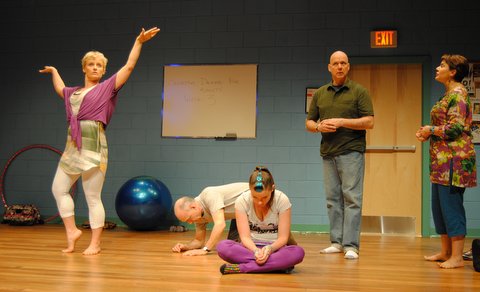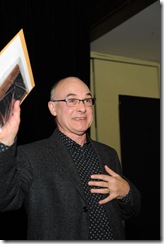
International Children’s Festival: Mummpitz from Germany hits Monty Python on the Head!
The Terrific Adventures of Brave Joan Woodsward takes us away on an initiatic trip through the imagination of an intense little girl called Joanna who loves to read about witches and knights and devils and dragons and all the mythology of the Middle Ages.
However it all plays out essentially as a comedy with three musicians who fill the space with the nostalgic sounds of guitar, melodica and drums. There is also a wide eyes actress who becomes the little Joanna. She is fed up with school and wants to escape into her imaginary world of books.




